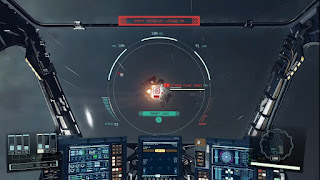ENTREVISTA PHIL SPENCER, THE VERGE PODCAST, 15 DE NOVIEMBRE 2022
01🚀 Periodista: "That is in a very middle state. It hasn’t happened yet, and you are now facing down the holiday quarter. You just made some big decisions. You delayed some big games that were supposed to come out for the holiday, Starfield and Redfall. Those would have been the hits. Talk through making that decision to delay the hits. Then I want to talk about this shift in the industry from being an “all hits all the time” model to this more recurring-revenue subscription model."
02🚀Phil Spencer: "I think positioning it as a decision might be slightly wrong, at least for me. It isn’t really a decision to move a game after spending the team’s effort over multiple years just to get to a point where you know you’re not going to deliver the game you want on the date that was promised. Now, it is at some level, because I have shipped games too early. We have experienced shipping games too early.
In hindsight, when you look at a game like Starfield, it’s taken so long and so much investment in new IP from the team. The decision to give the team the time to build the game that they feel they should be building is just the right thing to do. There are financial implications to those decisions. Weighing what is going to happen, whether it’s platform growth, subscriber growth, or frankly, the revenue that you generate when a new game launches, those are business decisions. You definitely have to weigh the outcome of those decisions.
For any game, but definitely for our games Starfield and Redfall — which are our first big Xbox games with ZeniMax coming into the team — I just wanted to make sure those teams felt they had all the support they could get from Xbox, and to maybe feel some of the benefit of being part of a larger organization that has other revenue streams and other helpful things going on. In the end, I believe the quality of the games will be better and customers will find the experience to be more interesting, which will hopefully feel like the right decision in hindsight."
03🚀Periodista: "Walk me through how the decision was made. Did those teams come to you? Did you look at the work? How long did it take to make that decision?"
04🚀Phil Spencer: "This is maybe where some of my experience in the industry comes to play. I know both Todd [Howard, Starfield game director] and Harvey [Smith, director of Arkane Studios] well, and we had a discussion about where those games are.
I’ll focus on Starfield with Todd — he and I have an honest discussion going on, starting from the day the deal closed on the purchase of ZeniMax. “Where are we with the game? What are the risks that we see?” We have some internal teams at Xbox, like our advanced technology group, ATG, which we can deploy to help teams look at where they are with tech challenges and production challenges.
As somebody who has seen a few county fairs here, I might get some gut instinct about where we are, just by the way the teams are talking about their game and where we are in playing builds. One of the things I have learned is that you want teams to feel like they own their dates. They deliver better when they feel like they own their own destiny with their games, so you wait for the real signal from the creative and production teams. It’s an ongoing discussion about where we are. It’s not like one day, all of a sudden, somebody comes in and says, “Okay, our date is going to have to move.” We track and understand the weighted risk on everything that is going on. It’s a fundamental part of the job that [Head of Microsoft Studios] Matt Booty and [CEO, ZeniMax Media] Jamie Leder do in running our first-party studio organizations."
🚀 Fuente.


Comentarios
Publicar un comentario